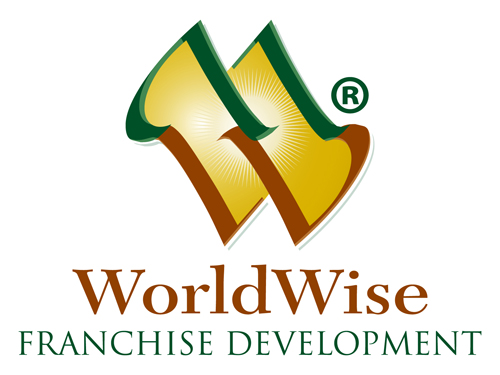Vetted, Graded, or Reviewed Franchises?
How are franchise offerings vetted, graded, or reviewed?
Disclaimer – This article is not meant to disparage or impugn sites or individuals that make an attempt to vet, grade, or review franchises. Opinions contained herein are my own. The article is an attempt to have the reader understand an opinion and to conclude, for themselves, their own. The article states that sites that exclaim to vet, grade, or review franchises should not be relied upon by prospective Franchisees without consulting with Franchisee centric attorneys and accountants during their due diligence process.
First, let’s begin by providing a definition of the word Vetted according to Miriam Webster:
Vetted
Definition of vetted
: having been subjected to evaluation or appraisal: critically reviewed and evaluated for official approval or acceptance.
If a website indicates that it has “Vetted” over 2,900 franchises or has read 5,000 FDD’s or;
If a website indicates that it has “Graded” over 3000 franchises or;
If a website indicates that it has “Reviewed” a % of “active” Franchisee respondents – (Of those Franchisees who actually responded):
What it Is it precisely they have accomplished?
If a listing of the details of a franchise offering is to be considered “Vetted” it defies the definition.
If a listing of the details of a franchise offering is to be considered “Graded” it defies the definition.
If a listing of reviews by a portion of existing Franchisees of a franchise system is to be considered “Reviewed” it defies the definition.
These sites seek to SELL FDD’s, Subscriptions, and Services (including leads for specific franchises) and essentially endorse paid subscribers and advertisers. Some will seek to “enhance” the brand through consultation based on survey results, for a fee.
Several of these sites also work with franchise sales organizations through affiliation and lead generation as well as providing the “speak with a franchising expert” option, typically associated with a franchise broker/consultant organization(s).
By definition does this describe adequate “vetting”, “grading”, or “reviews” according to the definition above? Rhetorical, of course not.
There are 23 required items in a franchisor’s “franchise disclosure document” aka the “FDD”.
At a very minimum, and without the immediate assistance of a qualified Franchisee centric Attorney, a thorough evaluation and critical review should occur for no less than the following items in the “FDD”:
Item 1: The Franchisor
Item 2: Business Experience
Item 3: Litigation
Item 4: Bankruptcy
Item 5: Initial Fees
Item 6: Other Fees
Item 7: Estimated Initial Investment
Item 8: Restrictions on Sources of Products and Services
Item 11: Franchisor’s assistance, advertising, computer systems, and training
Item 12: Territory
Item 13: Trademarks
Item 17: Renewal, Termination, Transfer, and Dispute Resolution
Item 19: Financial Performance Representations
Item 20: Outlets and Franchisee Information
Item 21: Financial Statements
Item 22: Contracts
To what degree do any of these vetting sites provide indications as to the above items in the franchisors FDD with the exception of “extracting” them from often outdated FDD’s?
Certainly not the “critical review” described in the definition. They don’t have the experience, skill set, or ability to be able to do so.
Some franchise associations and organizations now point to several sites for having accomplished their “vetting” of the franchises they seek to sell.
This is hardly the case and entirely unreliable.
Franchising organizations and groups should stop making the claim that their franchise offerings are “vetted” as it is intellectually and physically dishonest.
It is more than likely these organizations haven’t ever read the FDD’s themselves.
Even Franchisee “Reviews” are based on Franchisees who “respond”. That number of respondents then becomes 100%. It misses the mark on those who did NOT respond.
Arguably none of these sites incorporate a qualified legal or accounting critical review or assessment while yet mentioning that there might possibly be attorneys, accountants, committees, or advisors as part of their reviews or committees.
If told that each and every FDD and franchise contract has been reviewed by a qualified franchise attorney and qualified franchise accountant I for one could easily become cautiously optimistic. This isn’t the case unfortunately.
When, however, they lay claim to having vetted, reviewed, or graded two thousand six hundred (2600) to five thousand (5000) plus franchises, imagine the effort, time, energy, and careful scrutiny it would take to do so by qualified Franchisee centric professionals. It doesn’t happen. Remember also, this would be an annual undertaking as FDD’s are filed and renewed yearly.
To complete the “one two three” punch they produce their “best in class” lists, “lowest cost” lists, “Most popular lists” “Top Franchises for 2022”, “Most Successful”, “Most Profitable” etc. Web “Portal” stuff for sure.
In one instance, the “Most Successful” are based on low ratios of SBA (7)a loan charge offs. These aren’t the most successful as much as they are those Franchisees who “successfully” paid off their SBA guaranteed loans. This is manipulated data and misinformation generally.
Successful in that regard, yes, to the exclusion of other franchises and metrics, no.
Data driven by their respective vetting, reviews, and grades.
Charge offs, on the other hand, are in fact critical pieces of information.
How are these sites “monetized?”
Here are several examples, publicly sourced: –
“Graded” – Franchisee Listing $ – Subscription pricing? – ”Menu” pricing $ – Lead Sales $ ”Rotated Featured” – ”Best In Class”? Clearly a web portal
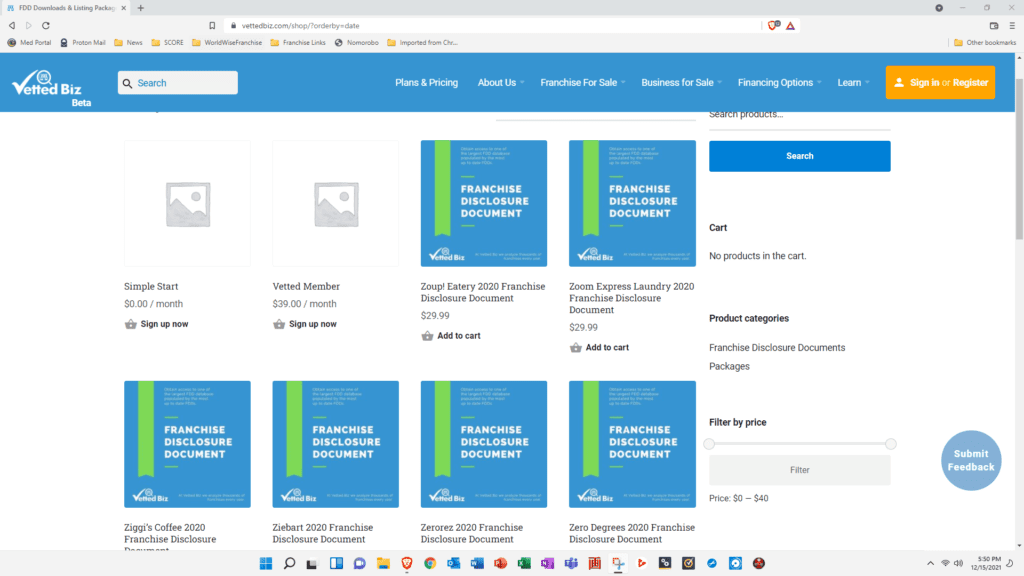


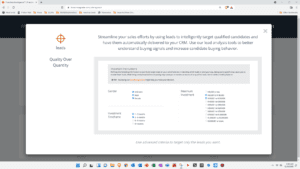

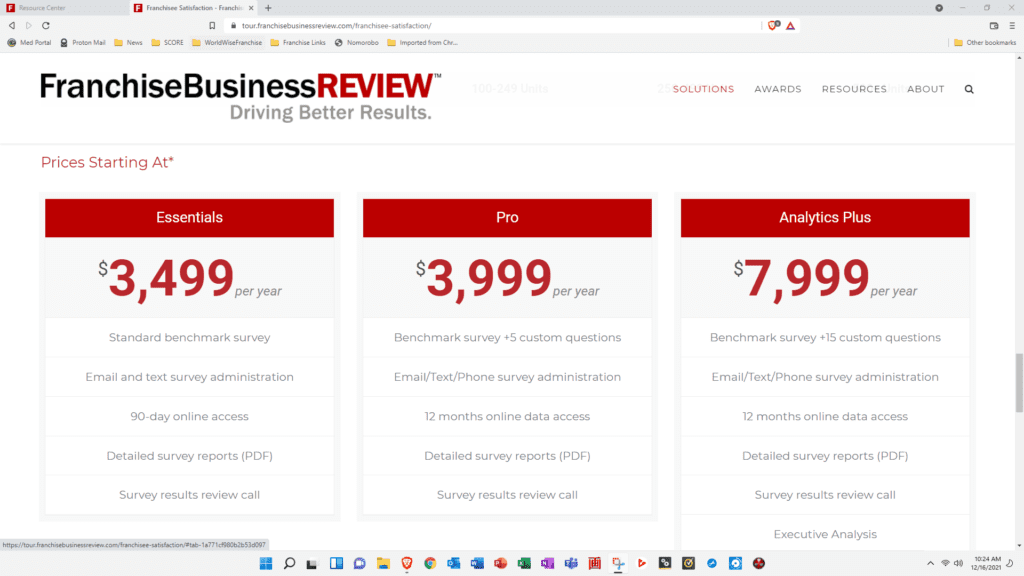
Examples, publicly sourced: “Vetted” – Subscription Price – ”Premium Access?” – FDD Sales $ Lead Sales $ – Lead Sale Billing – Call Verified Leads? – Content Pricing $ – ”Best to Own” – Clearly a web portal




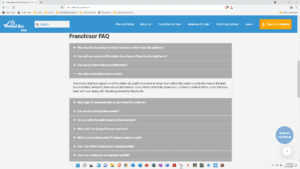





Examples, publicly sourced: “Reviewed” – Pricing by # of units – Pricing by # of units – Pricing by # of units – Pricing by # of units – Pricing (Ask Quote) – Subscriber Awards – Lead Sales $ – ”Better Leads” $85 – Resource Menu Content Pricing $ – Do a Survey $ – FBR Awards
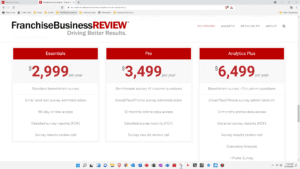
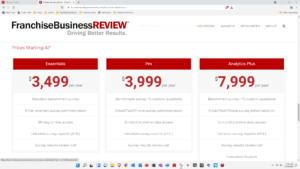
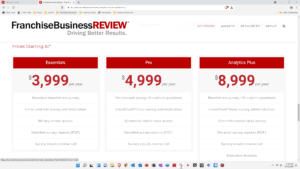
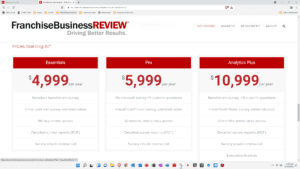




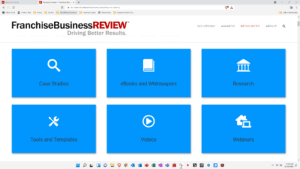
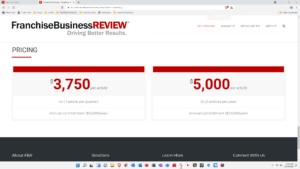

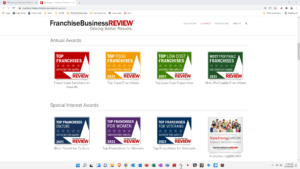
Summary and conclusion:
It would be unfair to say that these, and other sites, generally do a disservice to Franchisees as there are several nuggets of information that are potentially of valuable use. An analysis of SBA 7(a) loans is one such piece of good information but only when, however, combined with the due diligence and the assistance of qualified Franchisee centric attorneys and accountants would they become increasingly useful.
Much of what these types of sites offer is what is claimed to be transparency when in fact most of it is simply extrapolated information readily available via FDD’s and free available sources of information. There are examples of some worthy data analysis providing the source and age are considered.
The “work” they purport to do is really just a rehash of available information. Videos and narratives included are opinion based and should be held suspect considering the sources and analysis.
The sites are replete with paid advertising, paid rewards and best of class lists, best franchises for 2022, etc. that are typically a clear example of misinformation, opinion, and again should be considered from the respective sources regardless of their often “happy” entertainment value.
There is, without question, a monetized nature to the sites which is fine providing it isn’t held out to be something other than monetized.
The “net-net”.
There are multiple ways and methods to go about the process of due diligence concerning a franchise choice when considering becoming a Franchisee. Sources you’ll find are bad, fair, good, and very good. Don’t allow yourself to be guided by any in particular without the advice of your Franchise Attorney, your Franchise Accountant, and ultimately due diligence that blends the very best for helping you to make an informed, cogent, well-advised decision.
It is important to remember this. Often NOT pursuing a franchise may also be the right decision.
It is you who controls the journey and the final destination.

